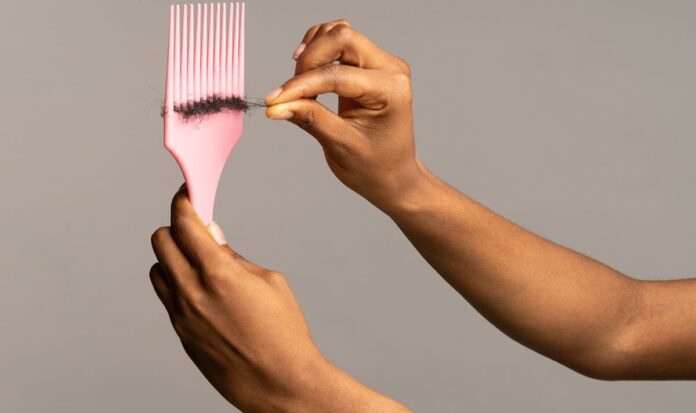A number of factors are required for hair health, but none are more important than diet. This is because the nutrients we acquire from food promote both the rate and growth of hair follicles. Overloading on certain compounds can have undesirable effects, however. Experts are warning that an excess of creatine, for instance, could trigger hair loss by interfering with hormone levels.Experts have warned that over-supplementation with creatine could drive hair loss by increasing levels of dihydrotestosterone.The warning comes after a trend blew up on TikTok encouraging users to exceed the recommended daily intake of creatine in order to increase muscle stores.Despite the ongoing popularity of the trend, internet searches for ‘creatine hair loss’ have reportedly risen 57 percent over the last year and are up by 158 percent in the past week, according to News Shopper.It appears TikTokers are also becoming increasingly concerned over hair thinning and loss after the hashtag #creatinehairloss amassed more than 80,000 views on the social media platform.READ MORE: Hair loss could be a warning sign of high cholesterol – how to spot Experts have warned creatine supplements may cause hair loss (Image: Getty )Experts at Cloud Nine told NewsShopper: ‘There are many misconceptions around creating but we strongly advise using caution when taking the supplement.’There are limited studies on creatine’s effect on hair loss with some stating that the use of the supplement can increase the hormone dihydrotestosterone which can trigger hair loss.’But, the trend itself of ‘creatine loading’ can also cause side effects and pose its own health risks.’Excessive use of creatine can result in stomach issues and digestive concerns. It can also interfere with medications that affect liver or kidney function.’DON’T MISS: Blood clots warning: Four types of drinks to avoid [INFORMER] Studies suggest seasonal hair loss peaks in Autumn (Image: Getty) Hair loss: The treatment tried and tested (Image: EXPRESS.CO.UK)The researchers also made a point of noting that the results of the small studies have not been replicated in other research.Intense resistance exercise itself has been linked to increases in androgenic hormones, they noted.Other causes like seasonal hair shedding could explain an increase in hair loss, as seasonal hair shedding peaks during autumn.Early reports in the journal Dermatology explain: ‘A number of otherwise healthy women without clinical alopecia complain of recurrent hair loss, presumably reflecting seasonality in the growth and shedding of hair.’


